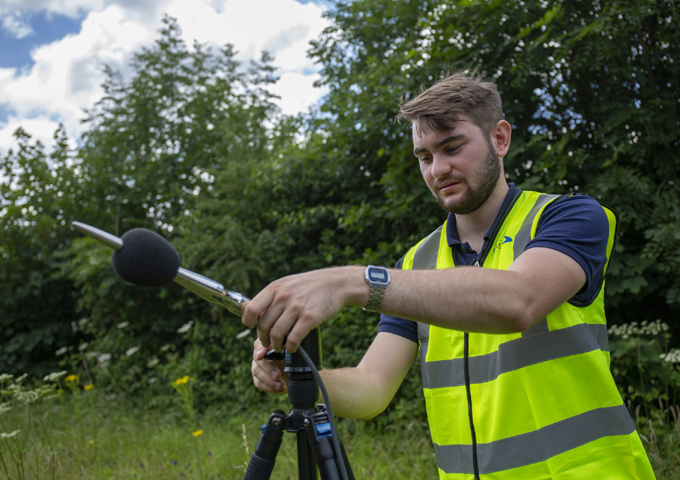Construction & Noise Control
Acoustic Consultants are responsible for controlling sound. You can see their work just about everywhere, however, it is a job that is not really known. With that said, it is a very enjoyable and rewarding career.
Each habitat and or building that exists is supposed to have specific acoustics. Therefore, Acoustic Consultants are responsible for creating these acoustics and reducing noise disruption. The work of Acoustic Consultants is very important as they impact our daily lives. They ensure that there isn’t unwanted noise in the areas we frequent the most such as our offices, homes and various other interior and exterior spaces we use.
Job description for an Acoustic Consultant
Acoustic Consultants are responsible for figuring out and solving problems when it comes to vibration and noise. They are typically found within specialist teams that have particular equipment and strategies to:
- Find the source of all noises and monitor them
- Design spaces meant for the performing arts
- Make sure that all sounds are within the regulatory guidelines
- If there are any noise complaints, find solutions
If you enjoy solving various problems, then this may be a perfect job for you.
Acoustic Consultants can be found in many different sectors and many of them are employed by lawyers, construction companies, architects, sound designers, conservation trusts, and more. They also do consult for home construction, office construction, hospitals, schools, airports, highways, etc. If there are any underwater projects that need to be done, these consultants would work to reduce the negative impact on wildlife. They can even work at musical venues to ensure that the sound is just perfect.
They don’t only focus on construction jobs but can also work in areas where there is a great deal of noise pollution. This is definitely a problem due to new construction all over the country. They even work with lawyers in order to handle various sound-related disputes. A noise survey report provides the accurate collection of noise data at the outset of a project is imperative, as the results will inevitably inform important elements of the planning application and detailed design.
Acoustic Consultants also work to preserve the environment as well as ensure all of the spaces that we spend the most time such as our office, home, entertainment venues, etc are all pleasant and enjoyable.
Qualifications
The minimum academic requirements include:
- 5 GCSE subjects which include Mathematics, English, and a Science subject with an A to C grade.
- 2 or 3 A Level subjects. These subjects must include Mathematics and Physics.
In order to start in this profession, your two options for entering it include:
Getting Higher Education: It is best to get an undergraduate degree in one of the subjects listed below:
- Engineering
- Mathematics
- Acoustics
- Physics
If you’re interested in an Acoustic or Acoustic Engineering degree, then you can study at the University of Salford, the University of Southhampton, or Southampton Solent University. If you want to learn more, be sure to check out the Institute of Acoustics or UCAS.
You can also consider studying Environmental Science or Music Technology. However, if you go this route, you will need to do additional study. For example, you can do a Master’s in Acoustics so that you can apply to get on-the-job training.
Apprenticeship
Another way to become an Acoustic Consultant is to do a Higher Apprenticeship. You can find these types of positions online, however, you will still require more training to be fully qualified. You will need to have A levels which include Maths and Science in order to qualify for the apprenticeship.
If you do want a job in this career, lots of employers will want you to have an Institute of Acoustics diploma. This will give you corporate membership and real-world training.
Necessary skills
Becoming an Acoustic Consultant is a technical job, but since you will be working within a team with other professionals, you will have to learn a variety of skills.

